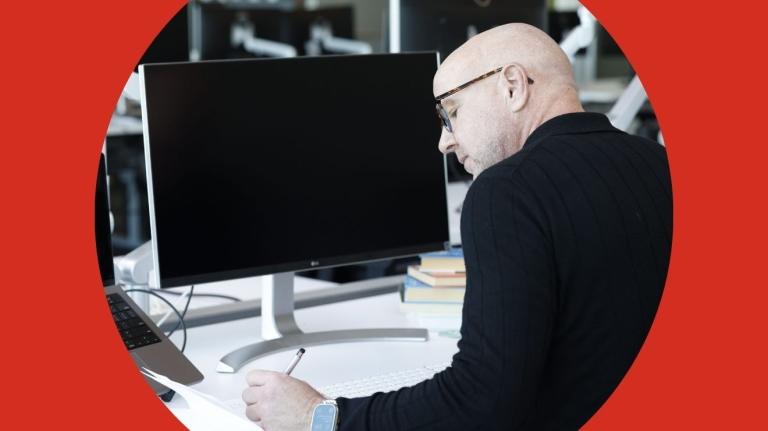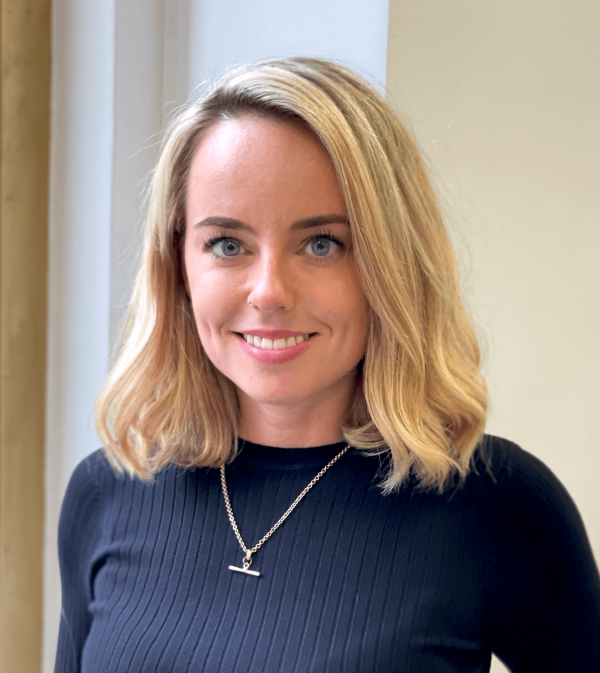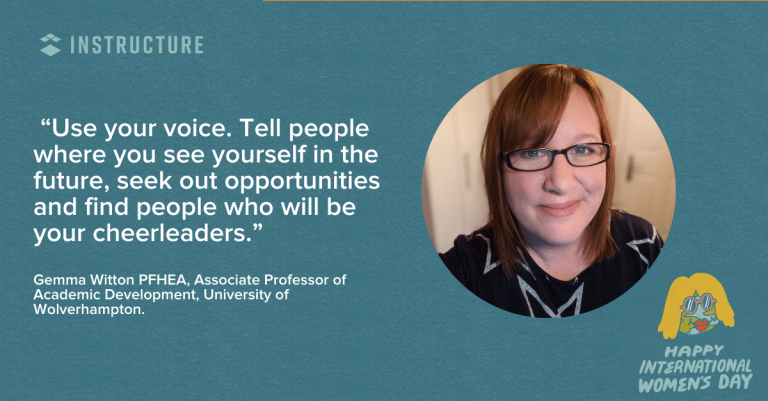Gemma Witton is Associate Professor of Academic Development and an alumni of the Advance HE Aurora Women in Leadership programme. We caught up with Gemma ahead of International Women's Day to discuss self-investment, the power of mentoring, and what a "return to the office" mandate would mean for gender inclusion.
Can you share any examples of how your institution has invested in women and accelerated their progress?
Each year, the University of Wolverhampton funds several places on the Advance HE Aurora Women in Leadership programme. In 2022, I was lucky enough to be one of eight selected for a place. It was on my radar for a long time before I decided to apply because I wasn’t sure how I would benefit from a women-only space. I wish I hadn’t waited for so long because it was completely transformational for me. It gave me the time and the space to reflect deeply on my professional identity and aspirations while widening my network of incredible women working in higher education.
I also had an amazing mentor who gave me some external perspective outside of my immediate department. Along with the practical leadership tools and strategies you would expect, I came out of the programme with some concrete career goals, a focused development plan and a feeling of optimism and motivation. Two years of hard work and determination later, I’ve been awarded Principal Fellowship PFHEA, secured three external positions overseeing experiential professional development schemes at other universities and just recently I’ve been promoted to Associate Professor of Academic Development. I don’t think I would have put myself out there to go for those things without Aurora. I’m now a member of our internal Aurora Alumni group, which provides an ongoing developmental community for women leaders at Wolverhampton and gives support and advice to new cohorts applying for and participating in Aurora. I’m constantly recommending it to others!
What advice would you give to your younger self, as a woman starting in her career?
One thing that I have done consistently for my whole career is seek out opportunities to learn. I have taken night classes, studied for formal qualifications part-time while working full-time, attended conferences and events, and joined email lists and online communities of practice. I have realised that the more I learn, the more confident I feel. I don’t regret any of it, but I wish someone had said to me, “You don’t need to know everything before you go after what you want”. I probably wasted a lot of time and chances while I was waiting to be 100% ‘ready’ for the next step.
The early part of my career was very serendipitous. I studied Fine Art at university and had no idea what I wanted to do. I got my first “proper job” as a website designer almost by accident. I was always ambitious and believed that working hard and getting the job done would lead to promotion and financial reward (spoiler alert: it didn’t). It was nearly ten years later that I took a sidestep from working in a secondary school into a higher education role looking for better opportunities. Since then, I’ve been lucky to have had a string of very supportive line managers who believed I could do things I never thought I could. Over time, I’ve learned not to be scared to have conversations about my career goals and aspirations with them. Yes, you do have to work hard and get the job done but also use your voice. Tell people where you see yourself in the future, seek out opportunities and find people who will be your cheerleaders.
How have behaviours towards women improved since you joined the Higher Education sector?
I believe the pandemic was a huge game-changer for women. Working from home before 2020 was always the exception, not the rule. Then suddenly, we were all sent home and the tools we needed to facilitate remote working were readily available and developing quickly.
I’m a working Mom of two school-aged daughters and I have always worked full time. Before the pandemic, if I wanted to take my children to school or be home in time to eat dinner as a family, I would have to arrive at the office after 9 am or leave the office before 5 pm. I would worry about what other colleagues without children thought about that and I would feel guilty for relying on others for wraparound childcare (not to mention the expense).
Now I have the flexibility to work non-standard hours and I believe my productivity speaks more than my presence in the office ever did. It has had such a positive impact on my work-life balance and mental health. I’m also more productive overall because I’m saving two hours every day on commuting!
Across all sectors, we’re starting to see a drive to get people back into offices. I’m starting to go onto campus more regularly too, but I plan for it. When I am there I use my time for connecting with people and collaborating and not sitting in front of my laptop doing things I could do at home. I worry a lot about the impact that a return to office mandate will have on women, especially those women emerging as leaders. If a promotion was dependent on spending the majority of my week in an office, I wouldn’t even consider it. I know many other women feel the same, and that can only be a bad thing for equitable representation in senior roles.
What’s the biggest investment you’ve made in your career to date?
Time. It’s really important to make space in your working week to define your goals and do things that are going to help you move towards them. Think of professional development as part of your job rather than a luxury and prioritise it as you would any other task.
Related Content
 screenshot_2025-11-21_at_11.46.15_am.png
screenshot_2025-11-21_at_11.46.15_am.pngBlogs
 BG-Canvas-2.jpg
BG-Canvas-2.jpgBlogs
 igniteai_blog_image.png
igniteai_blog_image.pngBlogs

